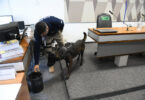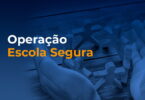É preciso examinar as controvérsias em torno dos esportes profissionais para saber que os eventos esportivos desempenham um papel importante na indústria do turismo. Grande parte dos jornais mundiais, dedicam mais espaço às notícias esportivas do que às notícias do mundo afora. E, grandes eventos esportivos, como a Copa do Mundo de Futebol, os Jogos Olímpicos, e o Super Bowl, nos Estados Unidos, se tornaram pauta de extrema importância. Jovens e idosos idolatram suas referências esportivas como verdadeiros ícones e modelos de comportamento, tanto que, quando um atleta acaba infringindo a lei ou envolvida em uma crise moral e ética, isso também se torna uma grande notícia. Talvez nada resuma melhor essa interação entre atletas, mídia e público, como as recentes posições políticas assumidas pelos jogadores de futebol dos EUA. Independentemente dos motivos pessoais, a falta de etiqueta mostrada por esses jogadores durante a interpretação do hino nacional (EUA), criaram grande controvérsia sobre o papel dos atletas na vida moderna.
Do ponto de vista do turismo, os esportes possuem duas categorias diferentes, uma passiva chamada “esporte de platéia” e outra mais ativa, que são os “esportes participativos”. Os esportes em que a torcida tem papel fundamental são realmente parte da indústria do entretenimento, na verdade alguns chamam o sistema esportivo universitário dos EUA ” edutainment “, ou seja, os atletas da faculdade são estudantes mas praticamente considerados celebridades. Os esportes participativos, como esqui, natação ou jogging, podem ou não ter um lado competitivo para os atletas, e o participante procura vencer os seus próprios limites, aumentando sua habilidade e resistência física. Nesta última categoria, o sucesso não é dependente do outro, mas sim da habilidade e da sorte do atleta. Ambos podem desempenhar um papel importante na indústria de turismo de uma comunidade e em sua qualidade de vida.
Eventos esportivos são grandes geradores de turismo. Milhares de pessoas participam de grandes eventos esportivos, que geram uma grande receita, não só para as equipes, mas também para as indústrias turísticas. Hotéis, restaurantes, casas noturnas, transportes são apenas algumas áreas que se beneficiam desses eventos esportivos. Ao contrário dos principais esportes profissionais, os esportes ligados à educação, como no atletismo universitário dos Estados Unidos, trazem milhares de fãs leais para a comunidade anfitriã e, nas atividades pré-jogo e pós-jogo, produzem uma grande receita econômica.
Entre as categorias profissionais e acadêmicas, existe as categorias amadoras. Esses torneios podem ser especialmente úteis para a entressafra na indústria do turismo, ou seja, durante a baixa temporada esses jogos atraem muitos jogadores que muitas vezes trazem suas famílias inteiras para essas séries localizadas. Para ajudá-lo a desenvolver um programa de turismo esportivo adequado à sua comunidade, considere algumas das seguintes ideias:
– Use o turismo esportivo para dar à sua comunidade uma nova imagem. O atletismo proporciona à comunidade com uma sensação e uma imagem de dinamismo. Use o turismo esportivo como forma de desenvolver efeito positivo contagiando a sua comunidade.
– Desvincule a política dos esportes. Esporte e política não devem se misturar. O recente declínio no comparecimento aos jogos da Liga Nacional Americana de Futebol é uma clara demonstração de que a política e os eventos esportivos não se misturam. Adote uma posição política se estiver preparado para perder uma parte considerável da sua clientela.
– Conheça os riscos e pratique uma boa gestão. Na sociedade de hoje em que o litígio se tornou um modo de vida, verifique com os escritórios de advocacia de sua comunidade sobre a necessidade de renúncias ao realizar torneios públicos, ao hospedar grandes eventos esportivos ou ao encorajar os visitantes a visitar sua comunidade por motivos recreativos.
– Determine quais as instalações da sua comunidade estão preparadas para receber o turismo esportivo e ofereça o melhor. Ofereça aos seus visitantes as melhores instalações e equipamentos possíveis. Se você está construindo seu programa esportivo em torno de atividades participativas, então, disponibilize equipamentos esportivos para a prática. Um campo de golfe sem nenhuma infraestrutura por exemplo pode não ser bem aproveitado para os visitantes como é para os locais.
– Visitantes que vêm, especialmente por motivos esportivos, tendem a interagir com a comunidade. Transforme suas instalações esportivas em um ambiente agradável, não só para desenvolver uma sensação de espírito de corpo, mas também para encorajar as pessoas a ficar na cidade após o evento atlético ter terminado.
– Conheça as condições em que as equipes do torneio terão que competir e surpreenda seus convidados. Os atletas gostam de saber o que esperam por eles, quais são as condições de jogo e quais os desafios que enfrentarão.
– Distribua listagens com os números de emergência para os seus visitantes. Todos os eventos esportivos têm um elemento de risco. Certifique-se de que os atletas visitantes saibam onde em caso de atendimento médico, quais restaurantes atendem antes e após os jogos, e se o check-out dos hotéis podem ser coordenados com horários dos eventos esportivos … Conheça os riscos que acompanham os tipos de eventos esportivos que você está promovendo.
– Tenha sensibilidade. Se você estiver promovendo atividades atléticas participativas, saiba quais são as necessidades especiais com as quais você pode se deparar. Esteja preparado para informar aos seus visitantes quais farmácias estão abertas de 24 horas, salas de emergência hospitalar e médicos e dentistas que desejam assumir pacientes de emergência fora da cidade.
-Use esporte como ferramenta de transformação. Muitas pessoas adoram combinar viagens com aprimoramento de habilidades. Considere desenvolver uma lista dos atletas, treinadores, atletas amadores e profissionais ou centros educacionais que possam estar dispostos a receber turistas com o objetivo de ensiná-los ou ajudá-los a melhorar uma determinada habilidade atlética. Aprender uma nova habilidade atlética pode não só ser benéfico a nível pessoal para diminuição do stress, mas também pode ensinar outras lições importantes, como trabalho em equipe e etc. Existem inúmeros centros de treinamento em todo o mundo que realizam estes cursos. Por exemplo, a Academia de Futebol Pierre de Coubertin de Portugal, localizada em Santa Maria da Feira, logo ao lado do Porto, ensina ao participante do curso a incorporar a arte do futebol na vida comercial. Esses centros de aprimoramento de habilidades são uma ótima maneira de aumentar o potencial de turismo de uma comunidade.







